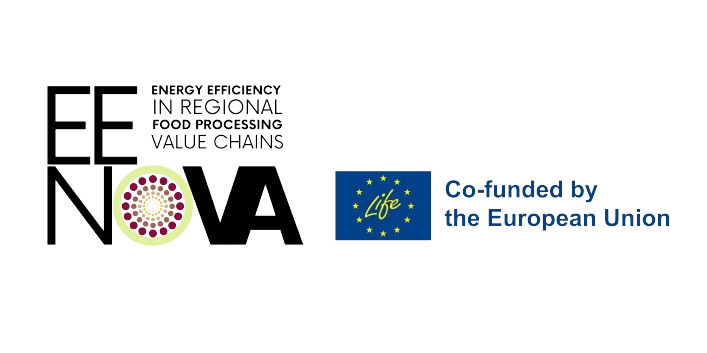Vienna, Austria – January 25, 2024 – The EENOVA project, which aim is to transforming the energy efficiency landscape in 5 food processing industries, kicked off its activities with a funky (yet serious) in-person meeting in Vienna from January 24 to 25, 2024. Hosted by the lead partner, ConplusUltra, this meeting marked the beginning of the project’s journey towards fostering sustainable energy practices across Europe.

- Validation of a Sector-Neutral Methodology: EENOVA will validate its innovative methodology on five different regional food processing value chains, covering bakery, winery, brewery, meat, and milk sectors. These chains span five different European countries, including Austria (AT), Bulgaria (BG), Lithuania (LT), Romania (RO), and Slovenia (SLO). This extensive validation process will pave the way for the development of a widely applicable replication model.
- Replication Model for Widespread Impact: Building on the successes achieved within the initial five value chains and countries, EENOVA aims to derive a replication model that can be applied to other value chains, not only within the same regions but across different sectors and areas. The project will actively involve relevant stakeholders, including sector associations and representatives from the finance sector, to ensure the model’s successful uptake
- Involvement of Policy Level: EENOVA’s approach is not limited to the industry alone. The project acknowledges the importance of influencing policy at the regional and national levels to create mutual interest in replicating the successful energy-saving strategies developed through its methodology.
-
- A Trusted Intermediary: While this intermediary may require training in energy-related topics, they need not necessarily be considered energy experts. Their role is to facilitate the implementation of energy-saving solutions within the value chain.
-
- A Value Chain of Companies: At least three companies within the value chain participate in the process, ensuring collaboration and shared objectives.
-
- A Structured Process: EENOVA follows a structured process that involves multiple roundtables at three levels: the single enterprise, the regional value chain, and consolidation towards general replicable solutions and policy learnings. This approach ensures that the impact of the project results in significant energy savings.







